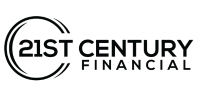In a world driven by rapid technological advancements and evolving financial landscapes, Millennials and Gen Z are paving the way toward innovative debt management and financial stability. These tech-savvy generations are leveraging digital tools, alternative financing options, and a flexible mindset to navigate the complexities of modern-day financial challenges. Their approach signifies a departure from traditional methods, embracing technology and community-based solutions to redefine what financial freedom means.
Understanding the Unique Financial Challenges
Millennials and Gen Z face a financial environment shaped by distinct challenges, with debt being a defining factor of their financial journeys. For Millennials, the student loan crisis remains a significant hurdle, with average debt surpassing $37,000, placing immense strain on their financial health. Meanwhile, younger Gen Z individuals are beginning adulthood with mounting credit card debt, often incurred to establish credit or address unexpected expenses.
These generations also contend with rising inflation, stagnant incomes, and increasing living costs, creating a landscape where innovative and adaptable solutions are necessary. Unlike their parents, they prioritize financial flexibility over traditional goals like homeownership, adopting a more cautious and creative approach to money management.
The Role of Digital Tools in Debt Management
Technology has become a cornerstone of debt relief strategies for Millennials and Gen Z, offering tools that empower them to regain control of their finances. The rise of fintech platforms has transformed debt management, providing accessible and user-friendly solutions. Apps like Mint and PocketGuard allow users to track spending in real time, helping them stick to budgets and curb overspending.
Debt-specific tools, such as Debt Payoff Planner and Tally, guide users in tackling high-interest debts systematically. Additionally, peer-to-peer lending platforms like LendingClub provide transparent borrowing options with competitive rates, offering a viable alternative to traditional banks.
Automation and artificial intelligence further enhance financial planning. Services like Acorns round up daily purchases and invest the spare change, promoting effortless savings. AI-driven tools, including Cleo and Digit, deliver personalized advice, keeping users motivated and on track with their financial goals.
Embracing Alternative Finance and Community Solutions
Millennials and Gen Z are exploring non-traditional methods to address debt, leveraging opportunities presented by the gig economy and decentralized finance. Platforms like Uber, Etsy, and Upwork provide flexible income streams, enabling young individuals to balance work and personal goals while repaying debt. This entrepreneurial spirit reflects their adaptability and resourcefulness in navigating financial challenges.
Crowdfunding has also emerged as an unconventional yet effective debt relief strategy. Campaigns on platforms like GoFundMe allow individuals to gather community support for unexpected expenses, showcasing the power of collective effort in addressing financial struggles.
Cryptocurrency and decentralized finance (DeFi) are gaining traction as alternative tools. Millennials and Gen Z are drawn to these innovative financial avenues, using them to build wealth and explore new borrowing options. Platforms like Aave and Compound offer decentralized loans, bypassing traditional banking systems and adding a layer of flexibility to their debt relief strategies.
Building a Sustainable Financial Future
Beyond addressing immediate debt, Millennials and Gen Z are focused on cultivating habits and practices that ensure long-term financial health. They actively seek financial education through accessible online resources such as podcasts, YouTube channels, and free courses on platforms like Coursera and Khan Academy. This thirst for knowledge empowers them to make informed financial decisions and develop sustainable habits.
The gamification of financial planning has also made managing money more engaging for these generations. Apps like Goodbudget introduce challenges and rewards, turning budgeting into an interactive and motivating activity. By sharing their successes with friends and family, Millennials and Gen Z foster accountability and support within their communities.
Their efforts extend beyond personal finance, advocating for systemic change through initiatives like student loan forgiveness campaigns and grassroots movements addressing economic inequalities. Credit unions and financial cooperatives have become popular, offering competitive interest rates and community-focused lending solutions that align with their values.
A Generation Empowered
Millennials and Gen Z are proving that financial freedom is achievable through creativity, technology, and community engagement. By redefining debt relief, they are addressing their financial challenges and inspiring a broader shift toward a more equitable and sustainable financial future.
Their embrace of digital tools, alternative finance, and open communication sets the stage for a new era of financial empowerment. With companies like 21st Century Financial offering tailored solutions and expert guidance, these generations are well-equipped to tackle their debt and achieve lasting financial independence. Together, they demonstrate that with determination and innovation, a debt-free future is not just a possibility but an inevitability.

